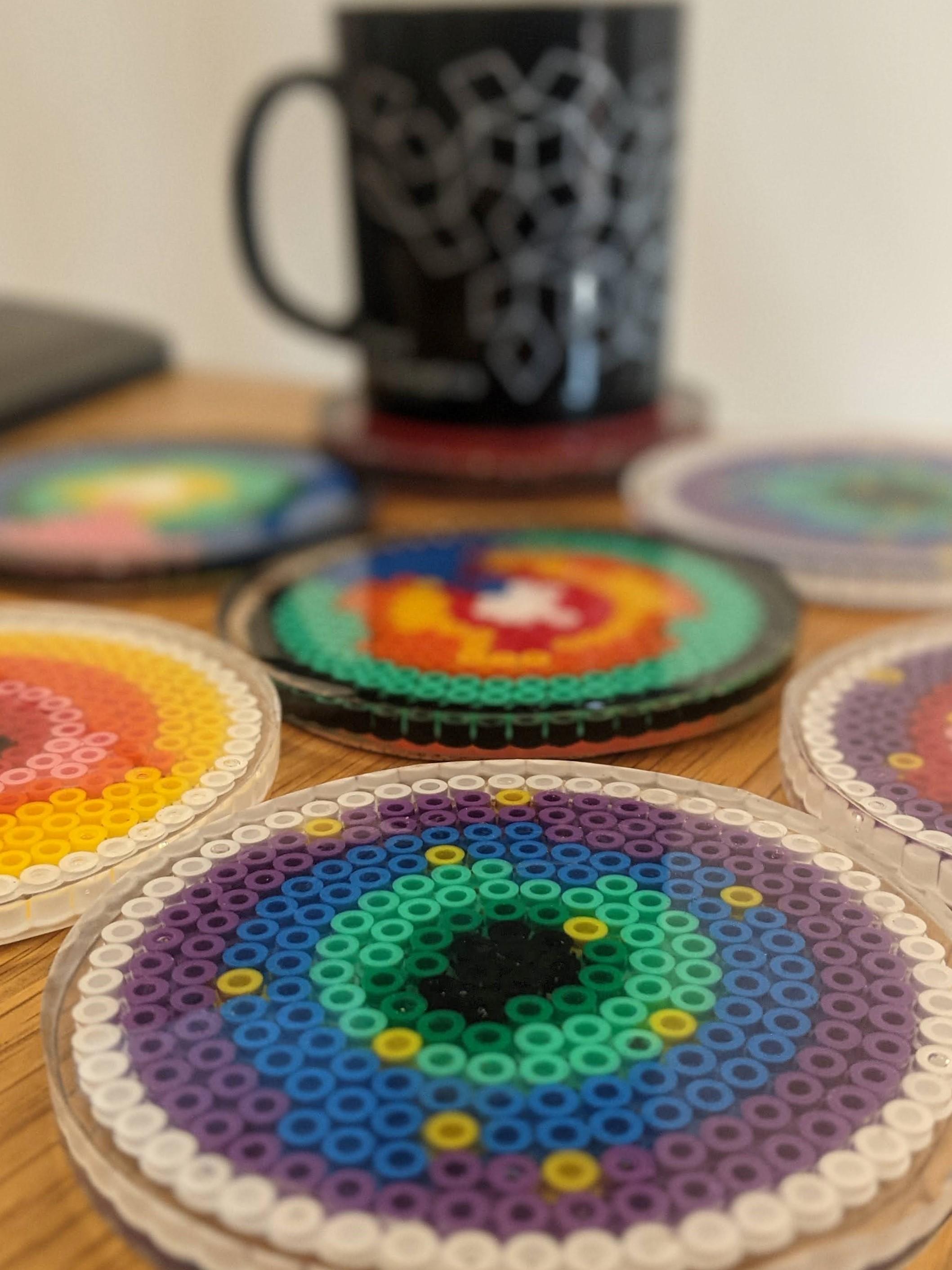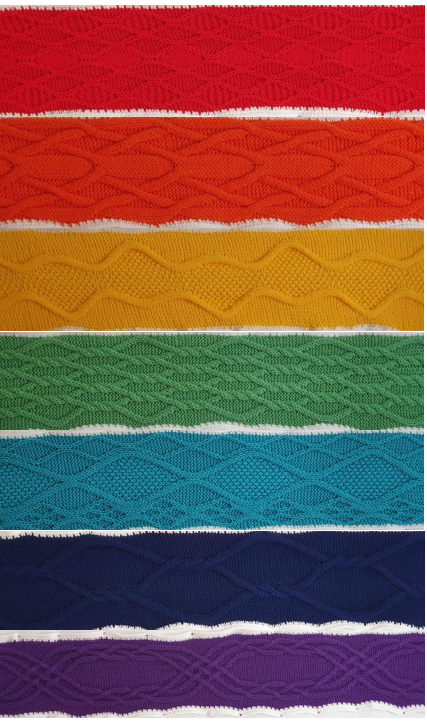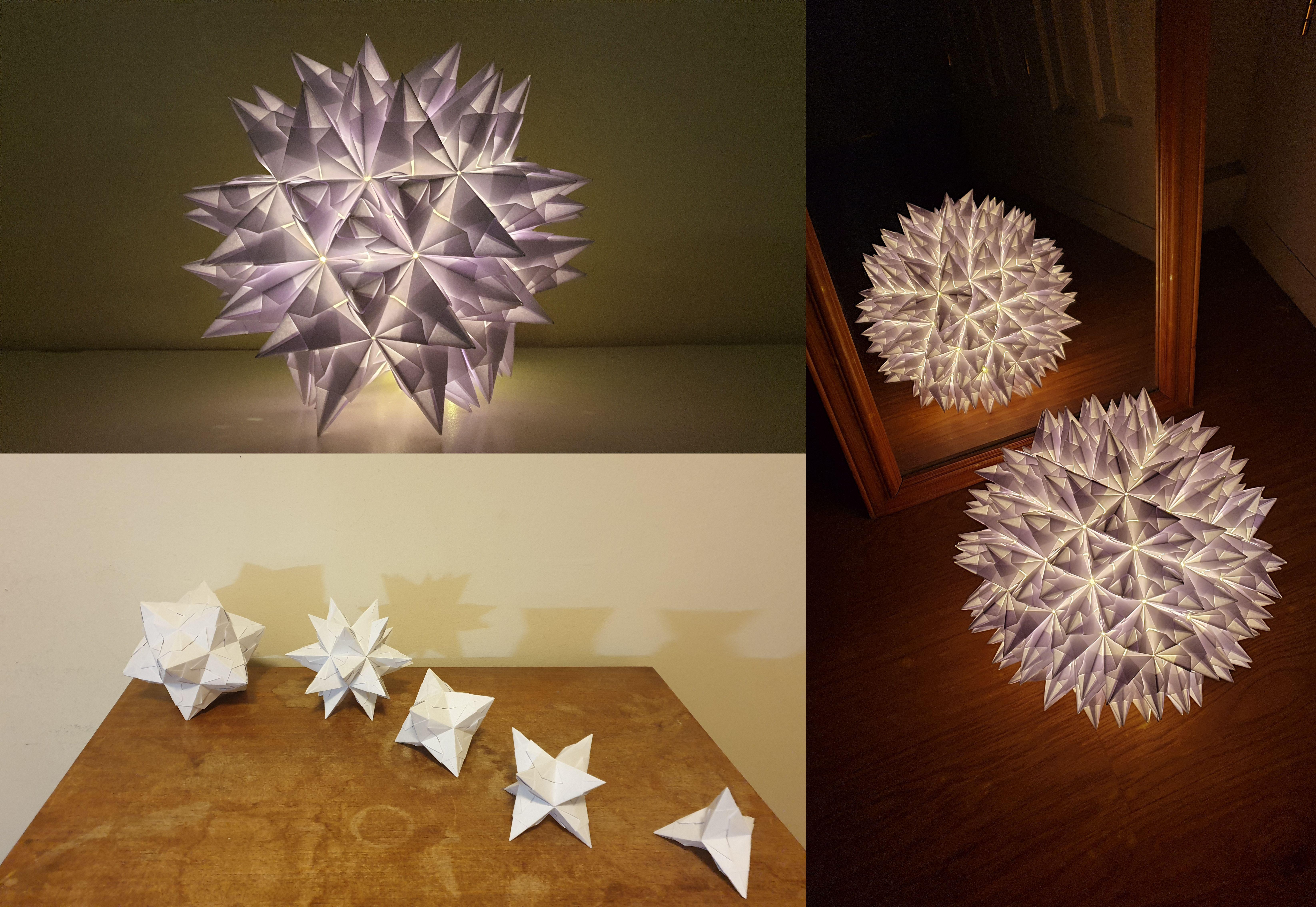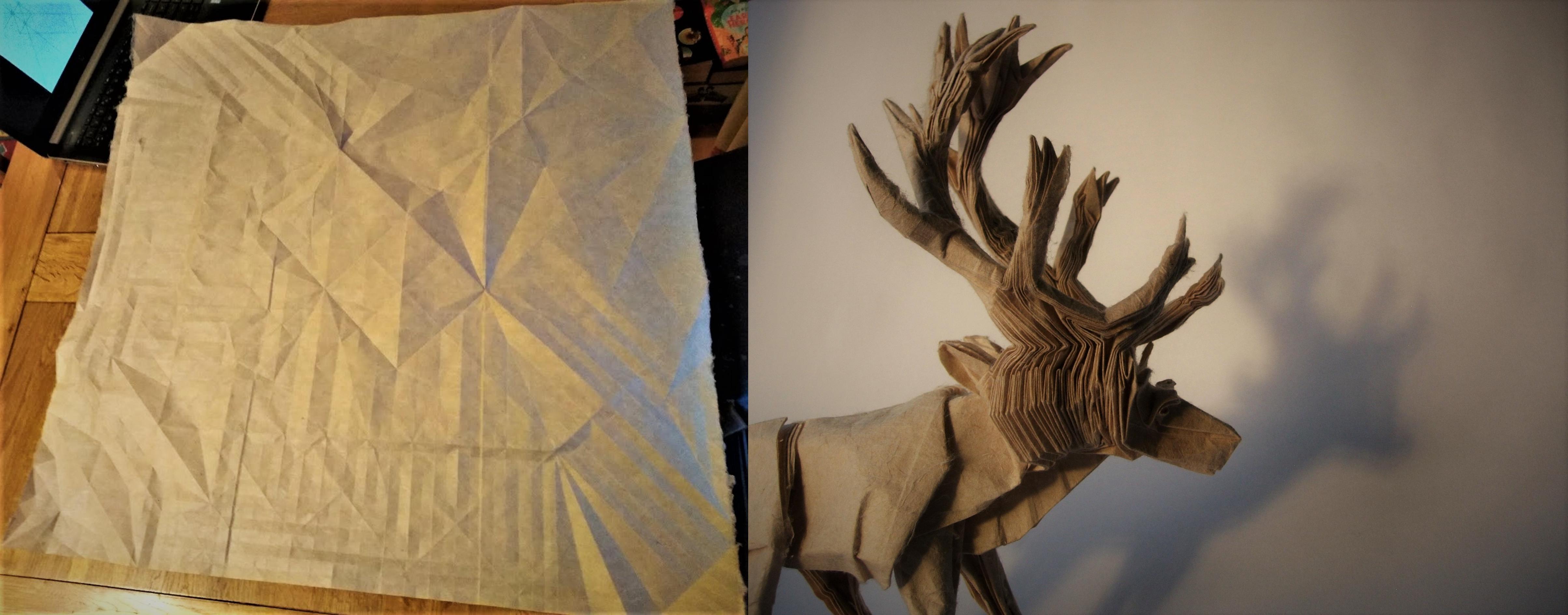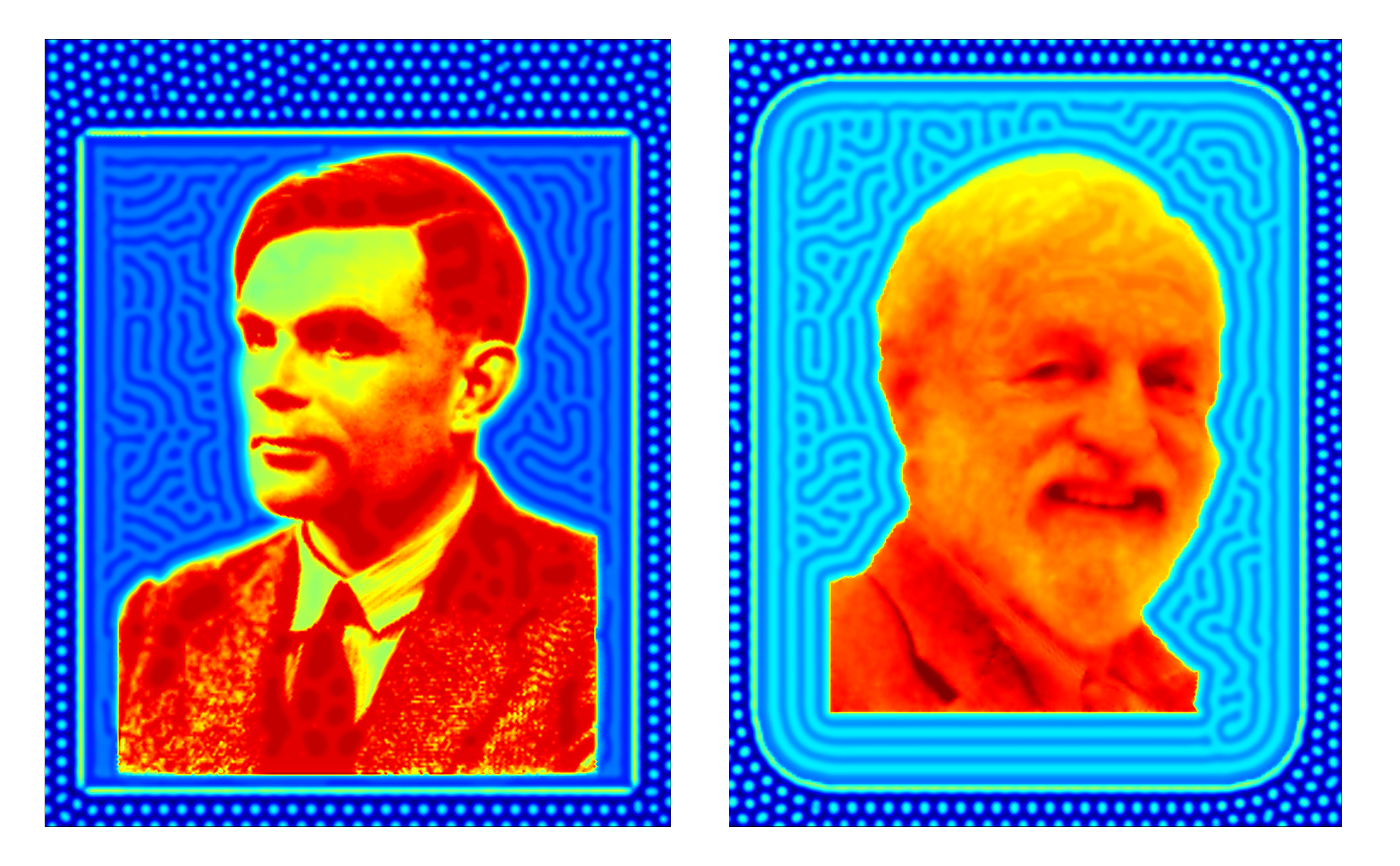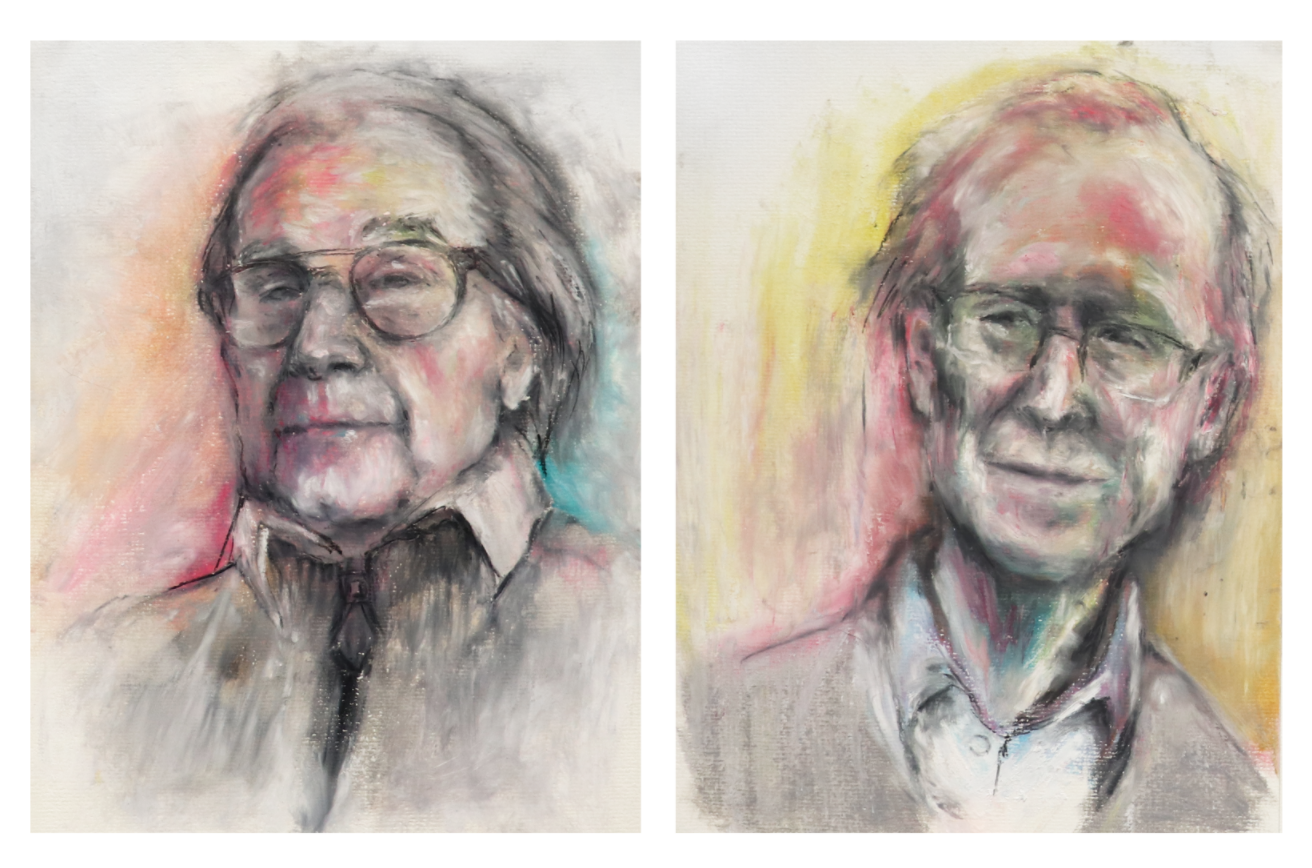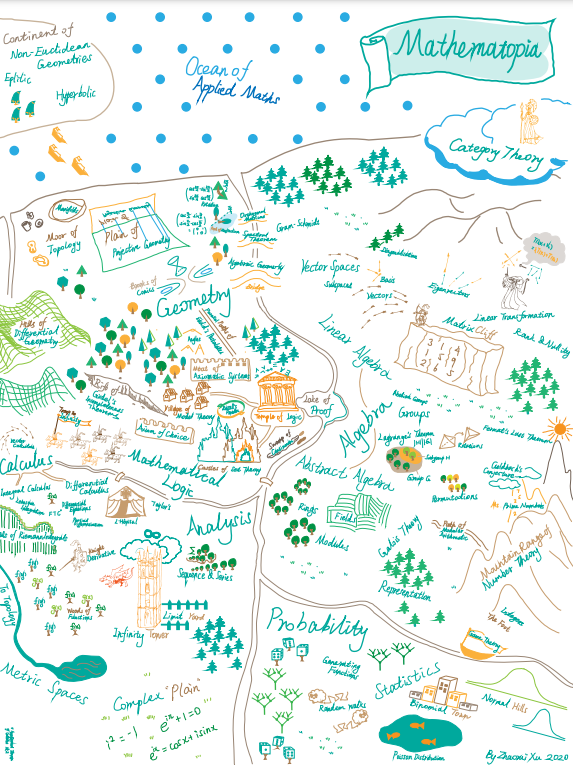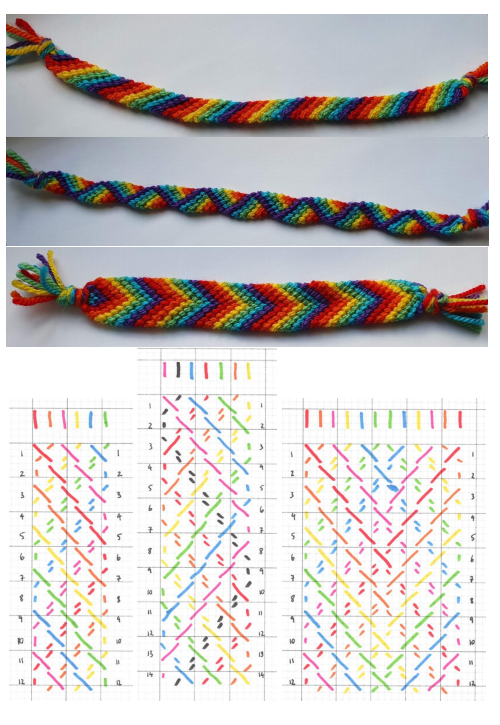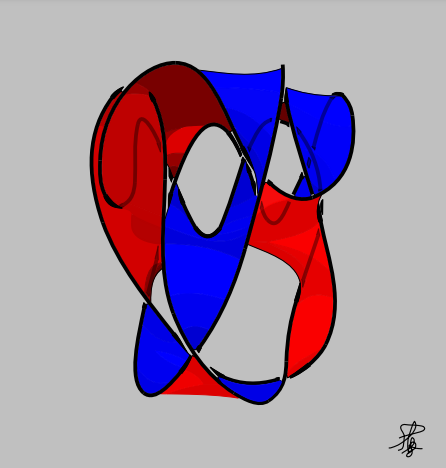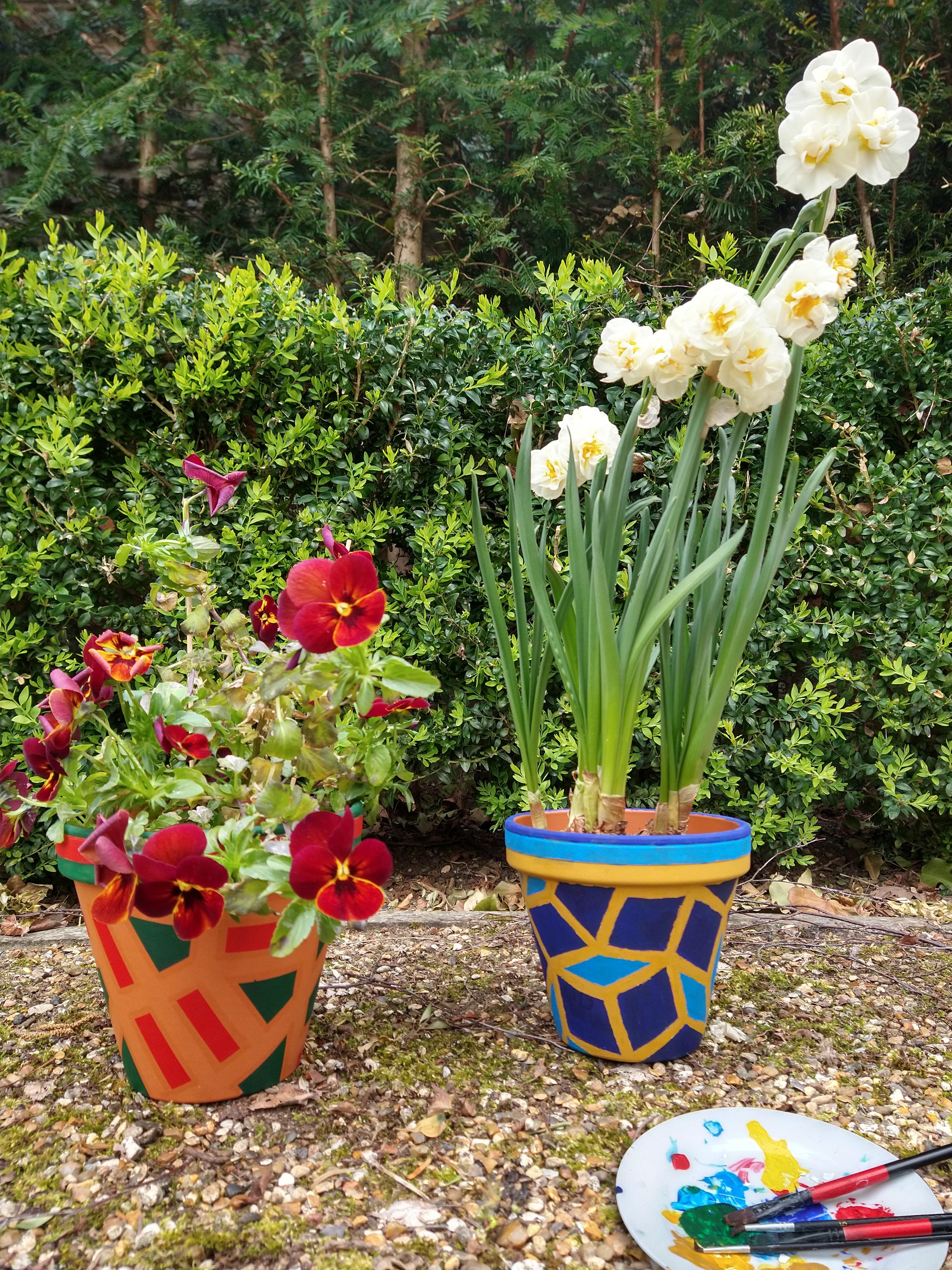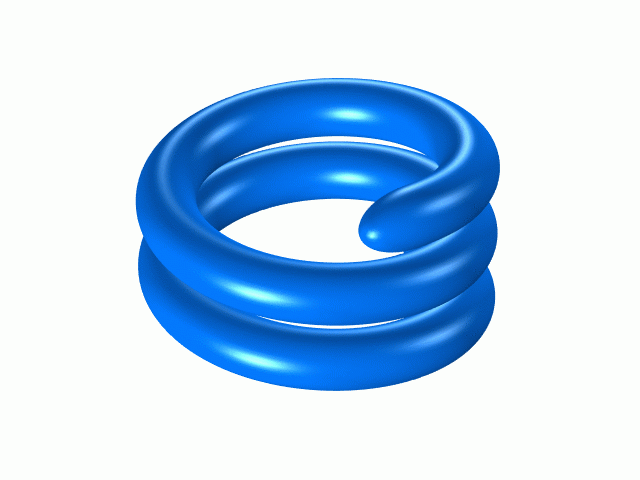Oxford Mathematics Online Exhibition 2021
Oxford Mathematics Online Exhibition 2021
Alongside the mathematics, the Andrew Wiles Building, home to Oxford Mathematics, has always been a venue for art, whether on canvas, sculpture, photography or even embedded in the maths itself.
Following the success of the Oxford Mathematics Online Exhibition in 2020, we again invited our mathematicians to share with us their creativity. These are the results from the latest round of submissions.
Prize winners
Joshua Bull - Agent-based model coasters
Vicky Neale - Knitted Scarves
Arun Soor - Origami Spiral
Nadja Vohradsky - Bascetta Star
Joel Madly - Triangular mesh with fractal behaviour
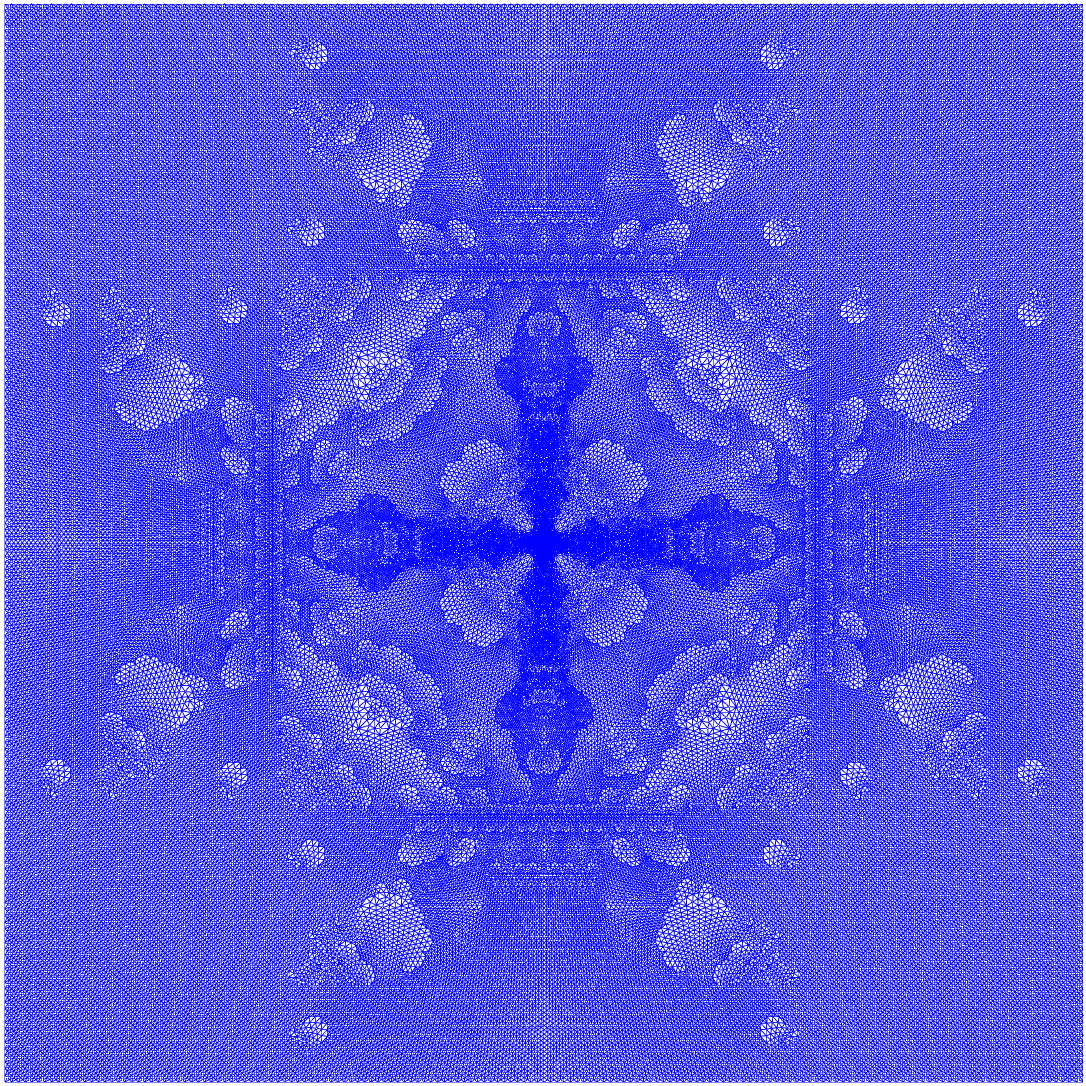
This triangular mesh is the accidental result of a dissertation on adaptive finite element method algorithms. The fractal behaviour was first observed in a stress test of a proprietary refinement algorithm, similar to Kobbelt's root 3 subdivision.
Maxi Purewal - Folded Reindeer
Andrew Krause - Turing Pattern Faces
Commended entries
Evan Nedyalkov - Mathematician Sketches
Zhaorui Xu - Map of Mathematopia
Alvaro Gonzalez Hernandez - Circle Packing Cheesecakes
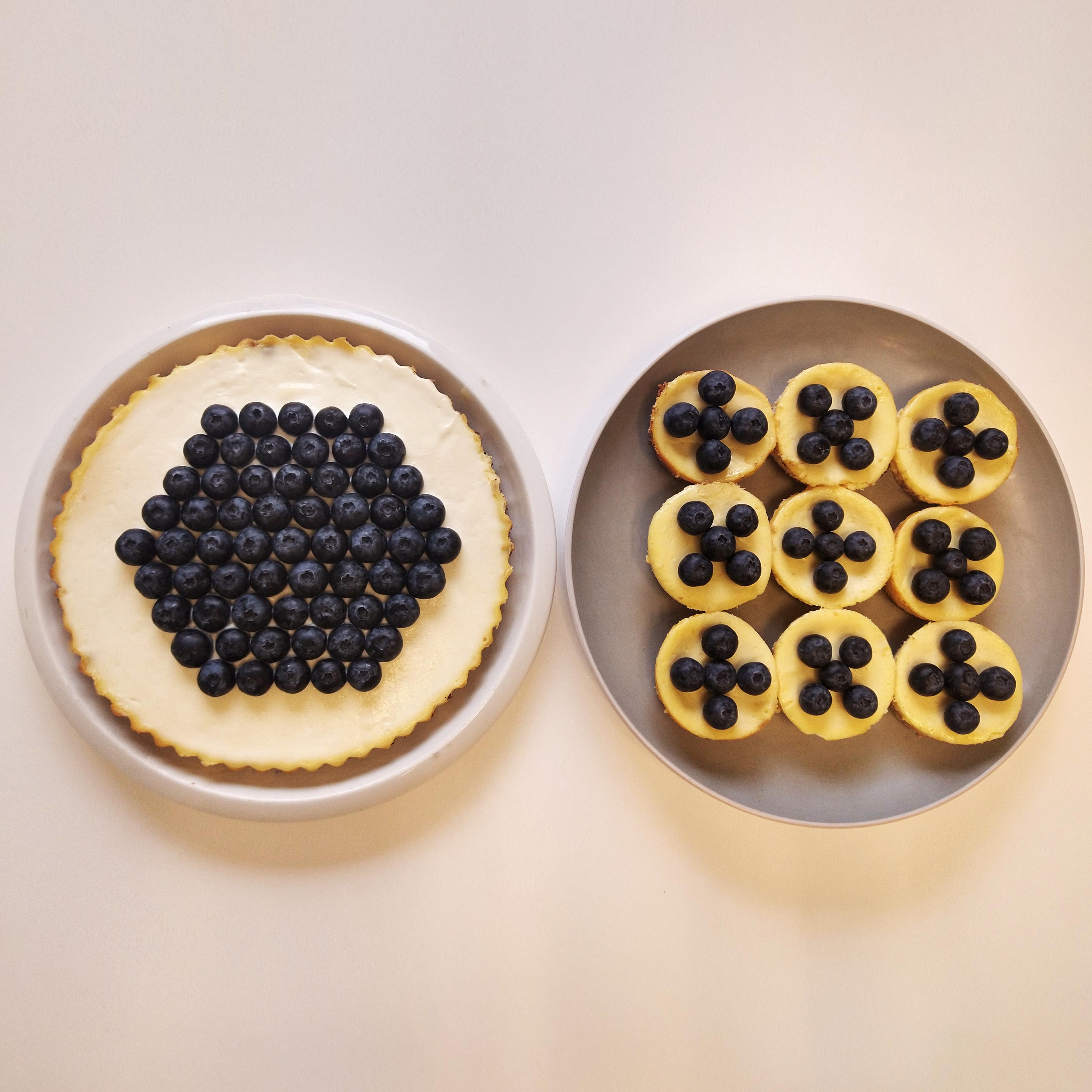
A circle packing is a way of arranging circles inside a given boundary such that no two overlap and some of them are mutually tangent.
Patrick Nairne - Sol
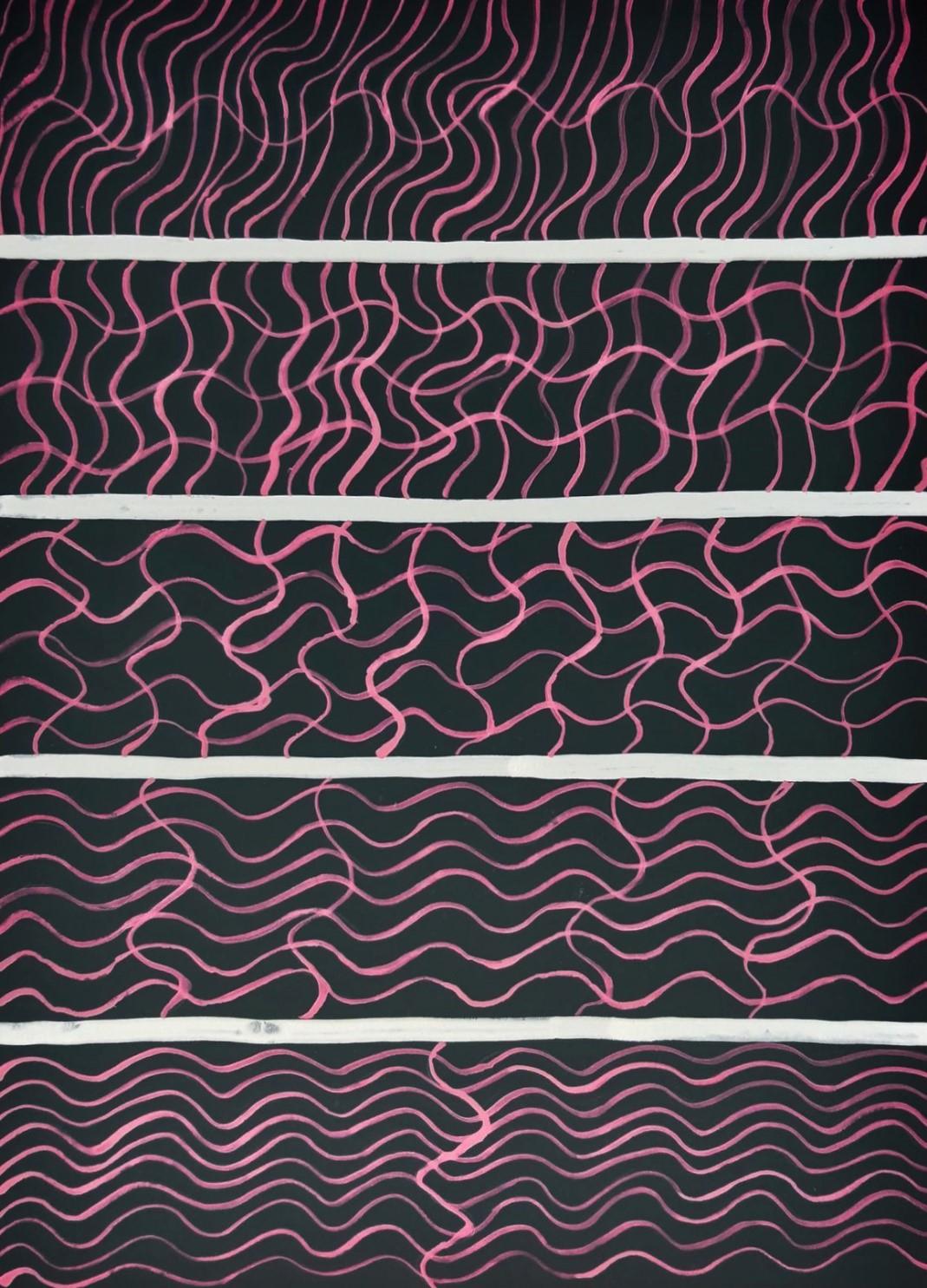
Sol is a three-dimensional (left/right, forward/back, up/down) space with the following bizarre property.
Renaud Lambiotte - Blackboard
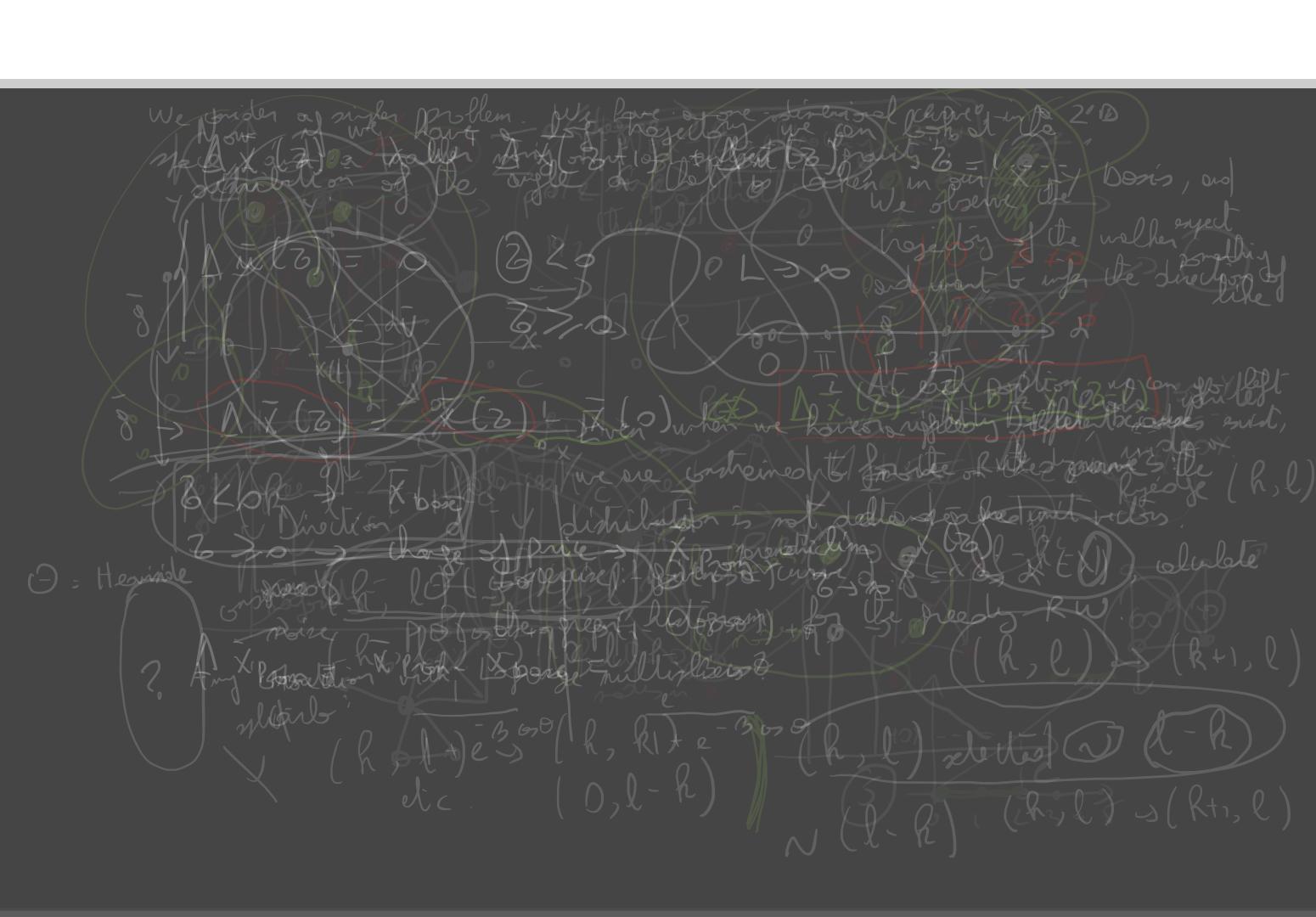
In this photograph, I have been overlaying pictures of my (virtual) black board of the last couple of weeks. A good representation of my messy state of mind:-)
Romy Williamson - Rubik's Cube
This is a Rubik’s cube of my own design. It’s made from 156 squares of paper, and other things I had on my desk. The Rubik’s cube is a popular example of Group Theory in real life.
Sam Palmer - Polyrhythms
Polyrhythms are a rare gem in music. They appear in a range of contexts from Queen’s Bohemian Rhapsody to tribal African music. Polyrhythm refers to multiple rhythms happening at the same time, for example having one melody playing three beats per bar while another melody plays four beats in the same bar. This is a little melody I wrote where most of the time the bass notes are playing in three time and the high notes are in four time.
Sam Palmer is a Postdoctoral Research Associate at the Mathematical Institute.
Vicky Neale - Friendship Bracelets
Wout Moltmaker - Seifert Surface
Tom Crawford - Mandelbulb
Alvaro Gonzalez Hernandez - Aperiodic Tiling Flower Pots
Siddiq Islam - Love-Heart-Shaped Curve Song
Andrew Krause - Pattern Forming Snake
Martin Parker - Diffusion limited aggregation
Aidan Strong - Bach Crab Canon
Here I play one of the canons from Bach's 'Musical Offering', which is one of Bach's most complex and mathematical works. The musical offering is filled with devices such as canons, augmentations, and retrogrades, each of which can be thought of as translations, stretches, and reflections of the music in the time axis respectively.


